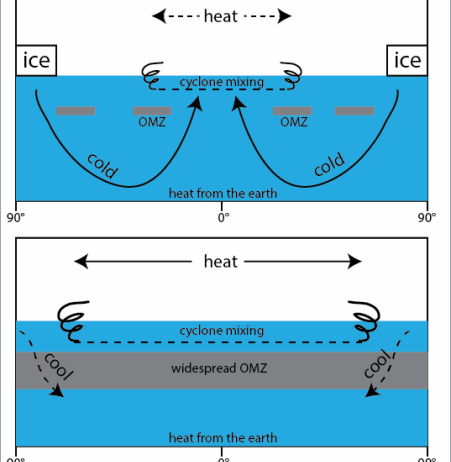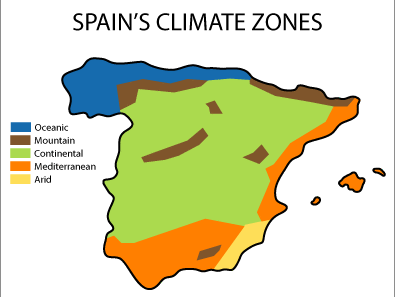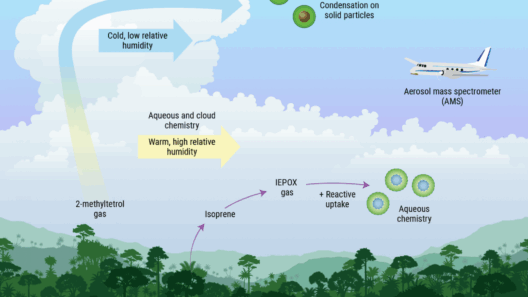The oceans, vast and enigmatic, occupy over 70% of our planet’s surface, playing an undeniable role in regulating the Earth’s climate. They serve as a critical nexus in the climate system, facilitating the exchange of heat and carbon between the atmosphere and the deep blue. This intricate dance of interactions has profound implications for the health of our planet and, subsequently, for human civilization. To comprehend the nuances of this relationship, it is vital to delve into the mechanisms by which the ocean influences climate variability—specifically through oceanic heat currents and carbon uptake.
Ocean currents, both surface and deep-water, are like the planet’s circulatory system, redistributing heat across latitudinal gradients. The warm waters of the tropics travel through currents such as the Gulf Stream, moving northward and releasing heat into the atmosphere, which in turn moderates climates in regions far from the equator. Conversely, cold currents originating from polar regions bring cooler temperatures that influence weather patterns, marine ecosystems, and the livelihoods of coastal communities.
These currents are not merely geographical phenomena; they are deeply intertwined with the mechanisms of climate change. As global temperatures rise due to anthropogenic factors, the delicate balance of these ocean currents is being destabilized. Studies indicate that phenomena such as the weakening of the Atlantic Meridional Overturning Circulation (AMOC) could precipitate a cascade of climatic disruptions, including harsher winters in Europe and altered rainfall patterns in the tropics. The implications of these changes extend to severe socio-economic repercussions, particularly for communities reliant on predictable weather systems for agriculture and fisheries.
Moreover, the ocean’s capacity to act as a carbon sink is both remarkable and alarming. The seas absorb approximately a quarter of all CO₂ emissions produced by human activities, a process that mitigates the extent of climate change. Phytoplankton in the upper layers of the ocean utilize this carbon dioxide during photosynthesis, producing oxygen and forming the basis of the marine food web. However, the very act of absorbing large amounts of CO₂ has led to a phenomenon known as ocean acidification, which poses a grave threat to marine biodiversity. Coral reefs, shellfish, and other calcifying organisms diminish in health and number as ocean acidity increases, disrupting the intricate ecological networks that support myriad marine life.
Furthermore, the interplay of heat and carbon within the ocean leads to feedback loops that exacerbate climate scenarios. Warmer waters result in reduced solubility of gases, leading to increased atmospheric CO₂ levels, which amplifies global warming. This linkage illustrates the perilous nature of the relationship between ocean health and climate stability. The cascading effects of diminishing marine ecosystems on fisheries and coastal protection underscore the interdependency between oceanic health and human prosperity.
As the planet warms, we are witnessing shifts in marine species distributions, with many fish migrating toward cooler waters, altering the dynamics of regional fisheries. These changes threaten the livelihoods and food security of millions who depend on fisheries as a primary source of protein. Additionally, the alteration in species interactions could lead to the collapse of vital ecosystems akin to coral reefs or mangroves, which serve as natural buffers against coastal erosion and storm surges.
A stark reminder of the ocean’s vulnerability is presented by the increasing frequency and intensity of marine heatwaves. These events not only decimate marine flora and fauna but can also lead to harmful algal blooms, which produce toxins detrimental to marine life and human health. The repercussions of these phenomena extend to the socio-political sphere, as nations vie for dwindling marine resources amidst changing marine environments.
In this context, it is essential to recognize the ocean as more than a mere expanse of water; it is a vital ally in the fight against climate change. However, to harness its potential sustainably, it is imperative to adopt comprehensive global policies aimed at protecting marine ecosystems. Investment in marine research is crucial, providing the knowledge necessary to navigate the complexities of ocean dynamics and implement effective conservation strategies.
We must embrace the ocean’s potential while recognizing the inherent risks of exploiting its resources. Creating marine protected areas and enforcing sustainable fishing practices can significantly enhance the resilience of marine ecosystems, allowing them to adapt and thrivet during periods of change. Additionally, innovative strategies, such as blue carbon initiatives, which seek to restore coastal and marine habitats that sequester carbon, could represent a dual approach to climate mitigation and biodiversity preservation.
Ultimately, the ocean will continue to play a pivotal role in shaping our climate. As stewards of this planet, it is imperative that we awaken to the urgency of ocean conservation. The relationship between the ocean’s currents, carbon dynamics, and climate change is complex and nuanced, yet it is one that offers pathways for resilience and adaptation. Embracing the imperatives of marine ecology, we not only safeguard the ocean’s intrinsic value but also protect the future of humanity. The time to act is now, for the tides of change are upon us, and our collective actions will determine whether our oceans remain a bastion of balance or succumb to the accumulating pressures of climate change.








